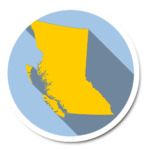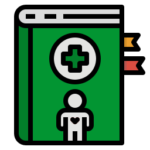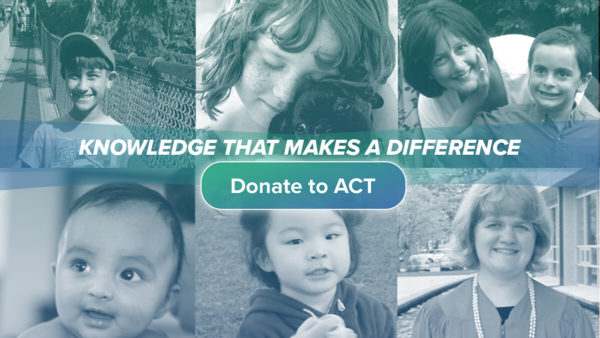At ACT we are aware that the current health environment is deeply worrying for many families
in our community, as well as autistic adults, and the professionals who support them. ACT is gathering information
on this page to support families during the COVID-19 crisis, including resources specific to those who are
neuro-diverse and useful general resources. As more become available, they will be shared via this page and on ACT’s Facebook page. We welcome your submissions to
[email protected].
Jump to a section:

Advocating for B.C. Families
ACT is gathering information from all relevant government ministries to keep you posted
on any resources that are being made available to support families and/or adults
affected by neuro-developmental conditions during the COVID-19 crisis.
The Ministry of Social Development and Poverty Reduction has announced increased supports
for adults receiving Persons with Disability Developments which addresses many of the
specific practical recommendations ACT submitted on March 18th. The
Ministry of Children and Family Development has announced some changes to the Autism
Funding Program, but has refused to extend deadlines for families at risk of losing
their child’s autism funding due to the shutdown of therapy services linked to COVID-19
ACT has received many letters that point out the cruelty of depriving already
marginalized families from being able to use their child’s therapy funding once services
are available. See the community feedback button below for the insights of families as
they struggle to keep their children in stable environments.
View the most recent updates See
ACT’s Tips on
Advocacy View community feedback
View Details
Advocating for B.C. Families
ACT is gathering information from all relevant government ministries to keep you posted
on any resources that are being made available to support families and/or adults
affected by neuro-developmental conditions during the COVID-19 crisis.
The Ministry of Social Development and Poverty Reduction has announced increased supports
for adults receiving Persons with Disability Developments which addresses many of the
specific practical recommendations ACT submitted on March 18th. The
Ministry of Children and Family Development has announced some changes to the Autism
Funding Program, but has refused to extend deadlines for families at risk of losing
their child’s autism funding due to the shutdown of therapy services linked to COVID-19
ACT has received many letters that point out the cruelty of depriving already
marginalized families from being able to use their child’s therapy funding once services
are available. See the community feedback button below for the insights of families as
they struggle to keep their children in stable environments.
View the most recent updates See
ACT’s Tips on
Advocacy View community feedback
Response from MCFD
February 13th, 2021 Update – Extension of Direct Funded/At Home Program Respite Flexibility
On February 12th, the MCFD announced the COVID-19 interim measures for the Direct Funded/At Home Program Respite program have been extended. Families who receive Direct Funding/At Home Program basic respite can continue to use their respite funding in a flexible manner for another year and do not need to provide a record of respite expense forms for agreements expiring before March 31, 2022. Read the full details on the MCFD website.
Unfortunately, ACT does not know of any moves on the part of the Autism Funding Branch to increase flexibility to allow all families to roll over their autism funding, past their child’s birthday, in light of the difficulties of accessing therapy. This has been especially detrimental for those children who cannot be engaged online. ACT will continue to press MCFD on this matter.
December 11th, 2020 Update – Interview with Minister Dean
MCFD Minister Mitzi Dean was interviewed by The Tyee about her plans for change in the MCFD. The Minister advised her priority is putting in place a new framework for supporting child and youth with special needs. Read the full interview.
The Minster also spoke to the MCFD’s pandemic relief measures, confirming some of the pandemic supports will continue, like increased flexibility over how respite money is used, but the $225 respite support will not return: “We’re in a different situation now than when that relief was issued, the landscape is different, because agencies have managed to create ways of delivering services differently in a pandemic”. Dean’s message for families included, “if you need help, reach out to the ministry”.
December 4th, 2020 Update – Representative of Children and Youth issues report
The latest report by the Representative of Children and Youth (RCY), Left Out: Children and youth with special needs in the pandemic, released on December 3rd, presents a searing analysis of BC’s Ministry for Children and Family Development, not only for their pandemic response, but their successive historical failures of Children and Youth with Special Needs across governments. The grim details of the report by the RCY, who is the watchdog for the MCFD reporting directly to the legislature, will ring true for families caring for children with special needs and those following ACT’s advocacy work in 2020. In the survey that the RCY did of over 500 families last month: “45 per cent of families had no contact with their CYSN worker during the six months (April to September) when emergency measures were in place, and 63 per cent report no contact since measures ended.” The RCY’s report echoes the shocking results of Simon Fraser University’s survey, released three weeks ago, which revealed similar findings of families under such extreme strain, that nearly 10% have considered putting their children in foster care.
Read ACT’s full statement on the release for the RCY Report.
Our thanks to the Representative
Families of children with special needs across BC owe a great debt of gratitude to Dr. Jennifer Charlesworth, the Representative for Children and Youth for bringing together organizations advocating for children across a range of special needs, including ACT, to work with her on this report. Perhaps it is time for advocacy organizations to bring together families across special needs/neurodiversity, a union of families to stand together to demand the therapies and equipment their children need to thrive?
New MCFD Minster Mitzi Dean responds
Minister Dean shared an official response to the RCY Report shortly after its release:” “I share many of the representative’s concerns and agree we need to apply what we have learned from the pandemic experience. This ministry has been working to fundamentally change the system of supports for children and youth with special needs and their families.” Read the full statement.
What is your response to the Rep’s report?
Please email ACT in confidence at [email protected] and we will feature your opinions on our website. Or respond via Facebook.
Background: Previous MCFD updates from ACT
June 23rd, 2020 Update – Limited pandemic supports for families extended
MCFD’s June 22nd press release announced its limited pandemic supports for families will continue through the summer. View the full press release.
How many ‘new families’ will benefit?
It is unclear how many new families will benefit from this announcement – whether the 1,300 families who received $225 a month from the Emergency Relief Fund as of April, will still receive it after July 1st when the next round of funding begins. The release refers to doubling but does not specify how much MCFD is investing in this new initiative. MCFD has specified that 30,000 children are eligible for emergency respite funding, depending on their level of need and have left it to social workers to decide.
Minister Conroy’s emergency response focuses on a new service delivery framework
On June 23, 2020, Minister Katrine Conroy, in a CBC interview defended MCFD’s much criticized emergency response record. Many families are reporting to the media and to their MLA’s that they feel desperate and abandoned by government. See ACT’s Community Feedback – Responses from Families.
The Minister defended the lack of emergency funding for respite supports for all families of children with special needs in crisis, by focusing on MCFD’s plan for a new MCFD service delivery framework – which will not be released until 2021.
Unlike other ministers, both provincial and federal, Minister Conroy does not differentiate between the requirement of government to provide emergency support and the long-term issues of policy development. If those responsible for the extended care sector in B.C. had decided to provide a limited emergency response to only 10 per cent of COVID-19 infected care homes for only three months, while they overhauled long-term policy, it would have been a catastrophe.
No New Money – Will clawing back autism funding pay for emergency respite?
A common thread that is running through MCFD’s response is that there appears to be no new money for this huge ministry tasked with protecting the most vulnerable children in the province. The current emergency provisions give families more flexibility in spending the existing limited funding envelopes that they already have, but no new money is being pumped into MCFD. The money that MCFD is clawing back in unused Autism Funding that families can’t spend on therapy could pay for this limited respite many times over.
Details of the June 22 announcement – “Final Round” July 1 to September 30, 2020
This “final round” of the short-term Emergency Relief Support fund, which provides payments of $225 per month for three months to eligible families, will be made available from July 1 to September 30, 2020. Children/youth who are eligible for the Autism Funding Program and the At Home Program medical benefits are eligible for this funding if approved for MCFD CYSN services prior to June 15, 2020. It has not been made clear if families who previously received these payments will be eligible for the second round of support.
When first announced in their April 8th press release, the Emergency Relief Fund consisted of $900,000. The MCFD has not announced what the funding envelope is for this “doubling” of emergency support.
Autism Funding extension still limited
The limited autism funding extension for children turning 6 or 19 has been extended to include children whose 6th or 19th birthday falls between March 15, 2020 and August 31, 2020. These families will be allowed three additional months to use unspent funding. The continued refusal of MCFD to extend contracts for all, because of the disruption to therapy triggered by COVID-19, has infuriated families. Nearly 8,000 signatures have been added to the petition calling on MCFD to reverse its decision. The primary request is that MCFD allow all families of children with autism to have more time to spend their treatment funding, given COVID-19 has shut down most therapy services.
May 5th, 2020 Update – MCFD’s lack of communication confuses families
Due to frustrations voiced by those navigating the MCFD website for information, ACT has continued to collect all relevant MCFD documents and keep them on a special page of our website so families, and the organizations that support them, can track the commitments the BC government makes to our families. Visit Keeping Track of MCFD Documents to view publications to date. On May 5th, many of the documents gathered on this page were removed from the MCFD website. As the information is still valid, ACT will keep these available as a public record.
ACT is also urging MCFD to send parents updates directly through the Autism Funding Portal, and by email for those who don’t use the portal. This information should also be translated. This would allow social workers to prioritize families who do not have internet access to keep them informed. MCFD could also share information via service providers for families who receive medical benefits. We hope that in future MCFD will alert us when they have new information to share with families. In case that doesn’t happen, please update ACT at [email protected], when you see new developments.
This blog written by a behavior consultant who serves highly vulnerable families captures the situation that community-based providers are facing – not all families have the same degree of resiliency and many children cannot be supported remotely. Those who have high needs cannot manage without significant wrap-around support from both schools and MCFD. ACT’s Executive Director Deborah Pugh shared her perspective on the MCFD and MOE response in an April 27th news post: Why is the response of the BC Government to children with special needs so weak? Since then, the situation in the community has not changed, indeed stressors on families are growing.
Is the BC Government listening to families of children with special needs?
There is a growing conviction among families and professionals that Minister Katrine Conroy is
profoundly out of touch. The number one question that families want Minister Conway to address
is why she is refusing to allow a contract extension that would not add costs for MCFD? If she
is not blocking an extension, what arm of government is responsible? Why has the Premier not
stepped in?
Is MCFD trying to balance its books by clawing back autism funding?
Autism Funding Programs cost government $85 million in 2018/2019. In the absence of an explanation, many families believe that MCFD, a chronically underfunded ministry, is using this opportunity to claw back millions in unspent autism funding at a time when the majority of affected families are preoccupied with survival. Ironically, MCFD, which is tasked with protecting vulnerable children, may be the only B.C. ministry that saves money during COVID-19, while these children and their families suffer the most hardship.
ACT’s advocacy efforts will continue
ACT continues to call on Minister Katrine Conroy and Premier John Horgan to provide
clear, compassionate and rapid support measures to families desperately trying to care for their
vulnerable children. We urge families and the professionals who support them to let them know
that this is not the time to focus on balancing government budgets at the expense of the most
vulnerable. To read the letters from families that ACT has been copied on, see Community Feedback on COVID-19.
It is worth acknowledging that the pressure that families are bringing to bear on the provincial
government through their advocacy efforts are having an effect. Families and professionals
should continue to contact the provincial government. The letters we are receiving from across
the province make very real the confusion and distress of families supporting children
with special needs. In contrast, the Ministry of Social Development and Community Living BC have
done a much better job of being compassionate and transparent.
Share your advocacy efforts with the special needs community
We invite the special needs community, including professionals, to share your feedback on ACT’s Facebook Page or by email to [email protected] if
they wish to remain anonymous. We have especially appreciated the insights of Children and Youth
with Special Needs Social Workers and we would like to hear from school district staff who are
taking the initiative to provide in school support.
Response from Ministry of Education
July 30th, 2020 Update – MOE releases BC’s Education Restart Plan for September
On July 29th, the MOE announced all BC schools will reopen in “Stage 2” of the 5-Stage Plan for K-12 Education in September. In “Stage 2”, students are to resume in-person instruction while seperated into learning groups of up to 60 students in elementary schools and up to 120 students in secondary schools. View the full Education Restart Plan.
It is stated that students with disabilities will continue to receive full-time, in-class learning – which the BCEDAccess 2019/2020 Exclusion Tracker Survey shows was not the case in earlier stages of the pandemic – however parents and educators expressed concern over how BC’s learning groups will manage educational assistants in a Vancouver Sun article published on July 30th. A deadline of August 26th has been set for all school districts and schools communicate information to parents on “Stage 2” Plans.
Background: Previous MOE Updates from ACT
July 23rd, 2020 Update – BCEDAccess report on exclusion of students wth disabilities released
On July 22nd, BCEDAccess published the results of their Exclusion Tracker Survey for the 2019/2020 school year. This annual report surveys parents on their experience accessing education for their children with disabilities in Grades K-12. The report revealed a 179% increase in parents reporting exclusion of their children from schools. The survey results show that access to education continues to be an issue for BC children and youth with disabilities and the pandemic made the inequity worse. View the full report for more information.
May 6th, 2020 Update – Resumption of in-class learning June 1st, 2020
On May 6th, the Ministry of Education (MOE) announced a 5-Stage Plan for resuming in-class learning for
students from kindergarten to Grade 12. “Stage 5” began when all schools were closed on March
17th and all in-class instruction suspended. All 60 BC school districts are currently in “Stage
4”, with most students accessing instruction online and children of essential workers being
accommodated in-person at schools. In a May 15th press conference, Premier John Horgan, Dr.
Bonnie Henry and other officials announced that “Stage 3” of the MOE’s plan will begin June
1st. This includes the resumption, on a part-time basis, of in-class learning for
students in kindergarten to Grade 5, and access to this for those in Grades 6-12.
Few Vulnerable Students Attending School
MOE has specified that exceptions are to be made for vulnerable students to attend in-person
during “Stage 4”, however it has been left to school districts to decide how to support
vulnerable students, including those with special needs who cannot learn remotely and/or whose
families are not able to cope with their children 24/7. This can be because the children have
very high needs or because the parents are in poor health, or both. The May 15th press
conference mentioned vulnerable students returning to in-class instruction in “Stage 3”, but
provided little detail on how this will be enacted and noted specific actions will be determined
by each individual district.
The response of individual school districts has been slow. As of May 6th, according to MOE, only
300 students with high-learning needs were attending in-class programs province-wide, although
there are over 77,000 students with identified special needs in the province. The majority of
these 77,000, who include gifted children and those with learning disabilities, can follow
instruction online – as can many children with autism. While it is difficult to calculate how
many students are no longer receiving any educational support, it is likely to be at least 5,000
and in all probability, more like 20,000. Premier Horgan has said BC is preparing
for a full resumption of school by September.
Little Evidence of an Effort by MOE & MCFD to Provide Wrap-Around Support
MCFD representatives have repeatedly stated that they are working with the MOE to get vulnerable
students back in the classroom, but ACT has seen little evidence of wrap around services being
offered. A MCFD Policy Bulletin posted April 30th provided guidance to MCFD staff for exploring
collaborative approaches with school district personnel where children may “benefit from
in-school supports”. It states: “At a local and regional level, MCFD/DAA staff should contact
their local school district staff or school principal to facilitate a coordination of services”.
In the meantime, MCFD, which has identified 30,000 families as eligible for Children and Youth
with Special Needs services, has done little to provide support. Its ‘Emergency Fund’ provided an additional $225 a month in
respite funding to fewer that 5% of families eligible for services.
April 3rd, 2020 Update – MOE joined MCFD for Q&A teleconference
On April 3rd, a MOE representative answered questions from the community as part of the MCFD
teleconference with families. ACT’s notes from MOE’s portion of the call are being shared to
fill an information gap. The recording of this call has not been shared by the MCFD.
March 27, 2020 Update – Joint Letter from Minister & BCCPAC
The B.C. Minister of Education and President of the BC Confederation of Parent Advisory Councils
sent a letter via school districts on March 27th, with
specific information for families.
A special website ‘Keep on Learning’ was launched by MOE on March 27th with many
excellent resources.
MOE has released Frequently Asked Questions for Continuity of Learning.
“Section 3 – Support for
Children with Disabilities and Diverse (Special) Needs” addresses the concerns of families but
there is little detail as yet. MOE has promised to keep their website updated as new information
becomes available.
Response from MSDPR & Community Living BC
The Ministry for Social Development and Poverty Reduction (MSDRP)
is responsible for providing a wide-range of services and funding for adults with disabilities,
including those who are living independently – often in poverty. MSDRP funds the Crown
Corporation Community Living BC (CLBC) largely for those who also have
intellectual disabilities. From the early days of the COVID-19 crisis, CLBC has been providing timely information on its website.
On April 2, the Minister of Social Development Shane Simpson, announced increases in financial
support for adults receiving disability or income assistance benefits. Read the details of the announcement here.
On April 21, CLBC announced that provincial emergency COVID-19 funding will be distributed
through CLBC to ensure people with developmental disabilities stay supported and safe during the
pandemic. As part of the B.C. Government’s $5-billion COVID-19 Action Plan, up to $35.6 million
will be available over three months from CLBC to support service providers to continue
delivering residential services, including group homes, home sharing and supported independent
living that about 9,500 adults with developmental disabilities count on. Read the full press release for more details.
Minister Simpson, MSDPR and CLBC have committed to hosting a series of teleconferences to address
questions from individuals and families during the pandemic. Recordings of previous
teleconferences and plain language summaries are available at Information about the Novel Coronavirus (COVID-19). Visit the
CLBC website for information on how to participate.
ACT’s Free Web Stream Series
Watch now – videos on Autism Videos @ ACT
Practical Tips for Helping Families Reduce Stress
The Challenges of Advocacy During a Pandemic
What Can I Do with My Child All Day? Strategies for Supporting Young Children
Using Enforced Family Time to Support Learning at Home

Autism, Anxiety and COVID-19

Practical Advice for the Autism Community from Dr. Anthony Bailey
Dr Anthony Bailey, Professor and Chair of Child and Adolescent Psychiatry at the
University of British Columbia is well known to the autism community. Dr. Bailey has
kindly written an article for us that is helpful as we all struggle to support our
families in this time of uncertainty.
View Full Article

Practical Advice for the Autism Community from Dr. Anthony Bailey
Dr Anthony Bailey, Professor and Chair of Child and Adolescent Psychiatry at the
University of British Columbia is well known to the autism community. Dr. Bailey has
kindly written an article for us that is helpful as we all struggle to support our
families in this time of uncertainty.
Worldwide, families are experiencing a sudden change in their life situation. Nearly a billion
children are out of school. Recreation centres, restaurants and cafés are shutting their doors,
many workers are being sent home or laid off, and in some countries the entire population is
being asked to stay at home. There are numerous reliable sources of information about COVID-19
in the mainstream media and on government websites; the purpose of this brief piece is simply to
draw attention to some issues that might crop up in families affected by ASD.
One of the clearest relevant fact sheets about the virus is written by a colleague https://cpa.ca/covid-19/, who draws attention to how anxiety
and fearful reactions are contagious and can be counterproductive in managing the current
situation. Helping individuals with ASD get through this disruption in part relies on our own
ability to stay calm and to model sensible behaviours; indeed, as at other times, strategies
that are helpful for people with ASD are often beneficial for us all.
The closure of public and private places to decrease the risk of viral transmission is disrupting
many family routines, which by itself is stressful, often particularly so for individuals with
ASD. Consequently, it is helpful to almost everyone to keep to as many old routines as possible
and to substitute new ones if necessary. Sticking to the usual sleeping and waking times, and
planning to vary meal times as little as possible, keeps the normal reference points of our day.
Getting dressed, even if we are not expecting to leave the house, also keeps us in touch with
our usual behaviours.
With regard to youngsters who may be out of school for quite some time, we don’t know yet just
how much use the different school boards will make of remote learning, but this may be slow to
kick in, or only keep children occupied for a limited number of hours. So, it may be necessary
to arrange some types of home-based structured activities in order to minimize the possibility
of more time spent on repetitive behaviours or obsessional interests.
When both parents are at work, or in working single-parent households, it may be possible to ask
for help from local older teenagers who are out of school, or indeed from adults who have been
sent home from their own jobs. Of course, this could be the moment to encourage children and
youth to play their part by helping with every day household tasks and acknowledging their
contribution. For some individuals it might be appropriate to help older people in the community
who are staying at home, perhaps by running errands, walking dogs, doing yard work etc. These
strategies may not be relevant for some less able individuals, and although individual
therapists may have to cease their contact with child and youth clients, their expert knowledge
about the individual can still be tapped for suggestions for appealing activities.
Many people are anxious about contracting the virus. Additionally, the pandemic is figuring so
prominently in the media that it is very hard to resist the temptation to update ourselves far
too often. If this is a problematic behavior for someone with ASD, then a helpful strategy can
be to suggest checking on the news just once or twice a day; but if that fails limiting access
to electronic media may be helpful, although possibly liable to cause some friction! There is
also the potential for repetitive questioning about the pandemic, or an overdeveloped sense of
risk or vulnerability, particularly in individuals who already worry about their health or have
OCD. As with other types of repetitive questioning, it can be helpful to allocate a limited time
at a fixed point in the day (after the evening meal often works well) when questions can be
asked and answered.
Many individuals with ASD prefer certainty, whereas at this stage of the pandemic so much is
uncertain. Providing false reassurance nearly always backfires, and it is generally more helpful
in the long run to say when some things are unknown, such as when life will get back to normal.
We can, however, be clear about some things. COVID-19 is unlike the worst pandemic of modern
times -the Spanish Flu of 1918. That influenza outbreak was particularly virulent in young
adults, whereas the vast majority of younger people who contract COVID-19 will have a relatively
mild illness. The reason that governments worldwide are taking such far-reaching precautionary
measures is to protect the elderly and people with serious medical conditions, who appear to be
particularly vulnerable to developing a severe illness. That is why visits to or by grandparents
are being discouraged, but we can still stay in touch by phone or other media. For younger, or
less verbally able individuals, Social Stories can be an effective way of explaining why
something invisible has had such a big impact on our lives.
This morning when I asked a family member who is also a lawyer, what areas of legal work she
thought were likely to increase because of the pandemic, she immediately replied Divorce! We are
not use to being cooped up with our families for so long and sometimes our nerves can start to
fray. That makes it particularly important to create some personal space for each family member,
but also to make sure (whilst we are still allowed) that we all leave the house for a reasonably
long period of time each day. Exercise is an effective stress reducer and we can still take it
whilst maintaining a reasonable physical distance from other people.
We are fortunate to be living in a highly developed country with a good health system. For the
overwhelming majority of us the stories we will tell about this period in the years to come will
be about our individual privations and our ingenuity, rather than the effects upon our physical
health. We need to keep upbeat and take good care of ourselves if we are going to help
individuals with ASD get through the pandemic without too much stress.

Anxiety, Autism and COVID-19 Resources
During this time, many of us are experiencing increased anxiety levels. This can be
especially difficult for individuals who have social-communication challenges. Anxiety
is a particular problem for autistic individuals across the age range but is often
unrecognized. The resources gathered below may be of help.
View Resources

Anxiety, Autism and COVID-19 Resources
During this time, many of us are experiencing increased anxiety levels. This can be
especially difficult for individuals who have social-communication challenges. Anxiety
is a particular problem for autistic individuals across the age range but is often
unrecognized. The resources gathered below may be of help.
- If coronavirus scares you, read this to take control over your
health anxiety – The Guardian - Coronavirus: how to cope with anxiety and self-isolation: The
Guardian - How To Ease Children’s Anxiety About COVID-19
- Coping With Stress During Infectious Disease Outbreaks –
SAMHSA - Anxiety in autistic adults – National Autistic Society
(includes tips for managing anxiety) - Managing Stress and Anxiety: Supporting People with Autism –
Autism West Midlands - Supporting Individuals with Autism through Uncertain Times –
UNC FPG Child Development Institute (includes resources for understanding COVID-19,
communication/expression tools, coping/calming skills, managing routines & more)
Determining if your child’s symptoms are autism or anxiety-related can be challenging. Review the
below resources for guidance.
- The Essential Guide to Anxiety and Autism – Research
Autism - Recognizing Anxiety in Children & Teens with Autism –
Autism Speaks - ACT Video – Anxiety – Melanie McConnell
If you are in need of one-to-one mental health support:
- Kelty
Mental Health: Call 1-800-665-1822, or email [email protected] - Crisis
Intervention & Suicide Prevention Centre of BC: Call 604-872-3311 in Vancouver,
or 1-800-784-2433 across BC - KUU-US Aboriginal Crisis Line: Call 1-800-588-8717
ACT’s Mental Health and Autism Project, at Autism Videos @ ACT,
is free and accessible without a password. For all of ACT’s resources on mental health, see
our Guide to Mental Health Resources.

Resources for Families with Younger Children
Includes advice for talking to children about COVID-19, social stories, visual aids,
tips for coping with isolation, and ideas for engaging children at home.
View Resources

Resources for Families with Younger Children
Includes advice for talking to children about COVID-19, social stories, visual aids,
tips for coping with isolation, and ideas for engaging children at home.
Back to School Resources
While challenging at the best of times, the pandemic has left many families confused as to how to best support their child’s learning needs while keeping them and their families healthy. ACT has gathered resources which we hope will be of assistance to families, and the professionals who support them: Back to School Resources.
Coronavirus Specific Resources:
- What’s COVID-19? – National Autism Society
- Pandemics and the Coronavirus – A Social Story by Carol
Gray - Talking to Children About COVID-19 (Coronavirus): A Parent
Resource - Video: How to Explain COVID-19 Social Distancing to Kids
- COVID-19: I Can Help – A Social Story by Carol Gray
(covers handwashing & “invisibility” of viruses) - My Hero is You, Storybook for Children on COVID-19 – IASC
MHPSS RG (explains how children can protect their loved ones & how to manage
difficult emotions) - Handwashing Visual Steps Poster – N2Y
- Social narrative: Don’t share germs! – Autism Society NC
- Autism and the Corona virus: 20 tips – Autism in Context
- Parent/Caregiver Guide on How to Help Kids and Family Members Cope – NCTSN
- Helping autistic kids cope with the chaos and uncertainty of
coronavirus – Washington Post - Someday – A Story of Hope for-Children by Carol Gray
- Watching a Pandemic on Television- A Social Story by Carol
Gray - What to Do When Your Child on the Autism Spectrum’s Routine Is
Disrupted by the Coronavirus – The Mighty - How to handle school closures and services for your child with
autism – Autism Speaks - How to handle clinical care during social distancing and
school/program closures – Autism Speaks - Supporting Individuals with Autism through Uncertain Times –
UNC FPG Child Development Institute (includes resources for understanding COVID-19,
communication/expression tools, coping/calming skills, managing routines & more) - Supporting Children and Youth with Autism and Intellectual Disability and their Families during COVID-19 – aidecanada
Ideas for Engaging Children:
- What Can I Do with My Child All Day?
Strategies for Supporting Young Children contains activities with potential to
support learning/engagement and reduce parent stress about reduced availablilty of direct
service provision. - POPARD – Using Enforced Family Time to Support
Learning at Home suggests some ways families can embrace the enforced family time as
an opportunity to teach skills embedded within regular family routines. - Free access to Help is in Your Hands – online learning modules for
families of very young children with social communication challenges. Includes: Increasing
Children’s Attention to People, Communications, Joint Activity Routines and the ABCs of
Opportunities for Learning. - Brain POP
is extending free access to families at home during school closures - Easter Seals School Closures Kit includes home activities,
schedules, choice and token boards. - Stay at
Home Guide for Kids with FASD – NOFAS (suitable for children with ASD also) - Free Online Events and Activities for Kids at Home – Common
Sense Media - Stuck at Home? 20 Learning Activities to Keep Kids Busy –
Understood - P.E. with Joe offers free home physical activity videos
for children - Free Arts and Crafts Resources for Home Learning – Coupon Follow
- Explore the world virtually with free websites like The Tallest Buildings In the World – Bayuut or The Seven Wonders of the World – Skyscanner.

Resources for Youths & Adults with Autism
Learning about the COVID-19, preventing the spread, coping with isolation, managing
routines and insights published by autistic adults.
View Resources

Resources for Youths & Adults with Autism
Learning about the COVID-19, preventing the spread, coping with isolation, managing
routines and insights published by autistic adults.
Learning about Coronavirus
- COVID-19 Information By and For People with Disabilities –
SARTAC - We are Heroes: A Plain Language Guide about COVID-19 and some
of the changes in our lives – Autistics for Autistics Ontario - Learning About the Coronavirus by Dr. Siobhan Timmins
- Video: Learning about COVID-19 – Office of Developmental
Diability Services - Fact Sheet:
Coping with and Preventing COVID-19 – CPA - Reduce the Spread: Wash Your Hands – Public Health Agency of
Canada - BC
COVID-19 Self-Assessment Tool to help determine whether you need testing
Social Distancing, Coping with Stress and New Routines
- Social Distance Infographic – Public Health Agency of
Canada - SAMHSA’s Tips for Social Distancing and Isolation
- Coping with stress during the 2019-nCoV outbreak – WHO
- How to cope with disrupted personal routines during COVID-19 –
Autism Speaks - Working from home: Developing a new routine – Autism
Speaks - Supporting Individuals with Autism through Uncertain Times –
UNC FPG Child Development Institute (includes communication/expression tools,
coping/calming skills and tips for managing routines & more)
Insights from Autistic Adults

Resources for Families Waiting for Assessment
As of early May 2020, publicly funded assessment centres, such as the BC Autism
Assessment Network (BCAAN) provincial hub at Sunny Hill Health Centre for Children,
are allowing portions of assessments to be done remotely. However, families still must
wait for an on-site assessment to complete the diagnosis when it is allowed by the
provincial Public Health Officer. While waiting, the resources gathered here may help
families prepare and approach early
home-based interventions.
View Details

Resources for Families Waiting for Assessment
As of early May 2020, publicly funded assessment centres, such as the BC Autism
Assessment Network (BCAAN) provincial hub at Sunny Hill Health Centre for Children,
are allowing portions of assessments to be done remotely. However, families still must
wait for an on-site assessment to complete the diagnosis when it is allowed by the
provincial Public Health Officer. While waiting, the resources gathered here may help
families prepare and approach early
home-based interventions.
COVID-19 Increasing Pressure on Families
Before the pandemic reached British Columbia, the wait time for a BCAAN assessment was
up to 60 weeks. The long wait times for publicly funded diagnosis have pushed many families to
seek a private diagnosis where the costs are in the range of $3,000 – $4,000. The further delay
is now putting intense pressure on families awaiting diagnosis. Autism Information Services BC, funded by the Ministry of
Children and Family Development, provides a listing of qualified private diagnosticians and more
information such as Waiting for a Diagnosis. However, families should be prepared
to wait even for private diagnoses as those are also on hold. Please keep checking the Sunny Hill Health Centre site for updated information on BCAAN
assessments.
Learning about Autism
We encourage families awaiting assessment to learn more about Autism Spectrum Disorders and
British Columbia’s infrastructure for supporting families.
- ACT’s Autism Manual for BC is a great place to start. For more
information on the autism diagnostic process in B.C., see Chapter 1 – The Diagnostic Process in British Columbia. - AIS BC has also published helpful brochures by age group, including: Ages 0-5, Ages 6-12, and Ages 13-18.
- ACT’s Autism Information Database (AID) is a curated library of
evidence-based information resources searchable by keyword. We encourage families waiting
for assessment to search the AID to learn from credible information resources on autism, the
diagnostic process and interventions. - Autism Videos @ ACT is a library of 60 free online
presentations by internationally recognized autism specialists available for free with no
password required.
Follow ACT’s Facebook Page for carefully sourced insightful stories,
ranging from research and government policy, to the world of entertainment, culture, and
lifestyle.
General Waiting for Assessment Guides for Parents
The following resources are basic guides with suggestions for what you can do while you wait for
your child’s assessment:
- Five things to do while waiting for an autism evaluation –
Autism Speaks - What Can I Do for My Child While Waiting for an Autism
Diagnosis? – Autism Awareness Centre - Waiting for a Diagnosis – Government of British Columbia
- A Parent’s Handbook: Your Guide to Autism Programs –
Government of British Columbia - To the Mama Waiting on an Autism Diagnosis – The Mighty
Autism BC is hosting free “Waiting for Assessment” workshops for families in British Columbia. During COVID-19, these workshops have been offered online via Zoom. View the workshop flyer or visit their Waiting for Assessment Workshops page for more information on workshop content and upcoming sessions.
What To Do While Waiting to Encourage Social Communication
Whether your child is ultimately diagnosed with autism or not, they must be showing signs of a
communication and/or social delay or they would not have been referred. Many children do grow
out of these delays, but research has demonstrated that parent involvement can really help young
children progress. This is not a matter of whether or not parents want to engage with
their child; often parents have tried for many months and feel defeated because of the lack of
success. Families need pointers on what to do especially as children who are later diagnosed
with autism are often very difficult to engage.
ACT has gathered the resources below to support families who would like some tips on what to do
while waiting, whether for the pandemic to recede or to come to the top of various waiting
lists. It is ideal if a professional, preferably who knows the child, acts as a coach even if
remotely. What we are suggesting below is a more sharply tuned approach to parenting. We are not
suggesting that the parent become therapists. For children who have a language delay these
resources will generally be easier to implement. For
those who go on to be diagnosed with autism, it is often harder for families, but the techniques
are the same. They are play based and are fun!
- ACT’s “What Can I Do with My Child All Day? Strategies for
Supporting
Young Children” is a free online web stream that provides a framework for thinking
about
how to provide support in the home. The PDF Handout contains example activities, resources, and
websites. - Autism
Navigator is a unique collection of web-based tools and courses that uses extensive
video footage to bridge the gap between science and community practice. - The Early Start
Denver
Model is a relationship-based early intervention model created to work with very
young
children with, or showing signs of, Autism Spectrum Disorder (ASD). Interacting with Autism: ESDM contains several videos
describing the various facets of the ESDM and PDF versions of several research publications
about the model.
What to do about Challenging Behaviors – Positive Behavior Support is Key!
The resources below focus on helping families re-consider the challenging behaviours that some of
their children engage in. Usually these behaviors occur because the child is frustrated as they
do not understand and can not communicate what they want. The approach of Positive Behavior
Support (PBS) is very helpful to change a negative dynamic in the home and ACT has a number of
free online videos that can help families understand how to support their child with practical
information that is parent-friendly. While you may need more professional support to really take
advantage of this approach, watching these videos will help you become a better informed
consumer of professional services.
- “Positive Behavior Support: What Parents Need to Know!”
with Brenda Fossett, PhD, BCBA-D - “Toilet Training for Children with Autism and other
Developmental Disabilities” with Pat Mirenda, PhD, BCBA-D - “Solving Sleep Problems in Children with ASD” with Beth
Ann Marlow, MD, MS - “Visual Support Strategies for Individuals with ASD” with
Brenda Fossett, PhD, BCBA-D

Stay Informed
The latest news from local and international public health agencies.
View Details

Stay Informed
The latest news from local and international public health agencies.
Public Health Agency of Canada Coronavirus disease (COVID-19): Outbreak page.
Residents of British Columbia can find updates from the BC Centre for Disease Control on their COVID-19 page. Download the COVID-19 BC Support App and
Self-Assessment Tool to receive the latest updates, trusted resources, and alerts. The
Self-Assessment Tool is built in.
Visit the World Health
Organization’s information for the public, including COVID-19 myth-busters.
BC Centre for Disease Control COVID-19 FAQ Guides:
- English
- Punjabi
- Traditional Chinese – 新型冠狀病毒常見問題-中文
- Farsi – (COVID-19) سوالات متداول درباره ویروس کرونای جدید

COVID-19 Resources in Additional Languages
French, Spanish and Chinese language resources currently available.
View Details

COVID-19 Resources in Additional Languages
French, Spanish and Chinese language resources currently available.
Français
Ressources en santé mentale:
- Psychologie : sept stratégies pour gérer l’anxiété liée au
coronavirus – The Conversation - Covid-19 : point par point, des recommandations d’experts pour
réduire les effets psychologiques négatifs liés au confinement – The Conversation - Le corona-souci [petit guide de gestion de l’incertitude en
période de confinement] – Aliéniste & rockologue
Ressources pour les familles ayant de jeunes enfants
Ressources spécifiques aux coronavirus:
- Qu’est-ce que le coronavirus? – Winnipeg SD
- Video: La COVID-19 expliquée aux enfants – Le Soleil, le quotidien de
Québec - Parler aux enfants du COVID-19 (Coronavirus) Une ressource
pour les parents – NASP - Coronavirus: comment expliquer la pandémie aux enfants sans
les inquiéter? – Huffpost - Lavez-vous les mains! – US CDC
- Scénario: “Je ne vais pas à l’école” – Arasaac
- Guide autosoins – Gouvernment du Québec – comprend des
informations sur la prevention, la protection et les mesures d’hygiène.
Idées pour engager les enfants:
- COVID-19 et Trouble du Spectre de l’Autisme Que faire à la
maison durant le confinement? – Hôpital Robert Debré - Les Fiches du GNCRA – des exemples de planning visuel à
télécharger. - SOS, mon
orthophoniste est confinée! – blog d’orthophonistes obligées de fermer leurs
cabinets pendant cette période de confinement et qui proposent aux familles de leurs
patients des activités à intégrer au quotidien, peu contraignantes, pratiques. - La Vitrine – des outils, des idées et des astuces pour les
familles afin de les accompagner dans le cheminement scolaire de leur(s) enfant(s) durant la
fermeture des écoles. - Des défis techno-créatifs pour le primaire – Classe de
sciences - Alloprof
– contenu académique gratuit. - Fiches d’activités – Naître et grandir
- Pauses Actives – WIXX
Ressources pour les jeunes et les adultes diagnostiqués avec l’autisme:
- Coronavirus: Et toi, tu peux faire quoi? – 1 jour, 1 actu
- Les gestes simples contre le coronavirus – Santé BD –
Veuillez noter que les numéros de téléphone sont en France - Évitez la propagation de la covid-19: lavez vos mains – Public
Health Agency of Canada - Distanciation sociale – Public Health Agency of Canada
- Guide autosoins – Gouvernement du Québec – comprend des
informations sur les meilleurs moyens de vous protéger
Español
Recursos de salud mental
-
Cómo lidiar con el estrés durante un brote de una enfermedad contagiosa – SAMHSA (Nota: SAMHSA es una organización en los Estados
Unidos. El número de teléfono proporcionado es estadounidense)
Recursos para familias con niños pequeños
Recursos de información relacionados con el coronavirus:
- “Mi historia sobre Pandemias y el Coronavirus” por Carol
Gray - “COVID 19: Yo puedo ayudar!” por Carol Gray
- iLaváre las Manos! – US CDC
- Hable con sus hijos sobre el COVID-19 (Coronavirus) – NASP
- Consejos sobre cómo hablar con los niños: Consejos para los
cuidadores, padres y maestros durante un brote de una enfermedad contagiosa – SAMHSA
(Nota: SAMHSA es una organización en los Estados Unidos. El número de teléfono proporcionado
es estadounidense)
Ideas para involucrar a los niños:
- #YoMeQuedoEnCasa: 13 ideas para hacer con los niños (y no todo
es televisión) – DUNA 89.7 - Recursos gratuitos de aprendizaje por materia disponibles en
español – Common Sense Media
Recursos para jóvenes y adultos diagnosticados con Autismo:
- Información de COVID-19 Por y Para Personas con
Discapacidades – SARTAC - COVID-19 (Coronavirus Enfermedad 2019) Qué necesita saber – NCDHHS
- Cómo protegerse – US CDC
- Detenga la Propagación de los Microbios – NCDHHS
- 10 maneras de controlar los síntomas respiratorios en el hogar
– US CDC - Consejos para lidiar con medidas de precaución durante un
brote de una enfermedad contagiosa: distanciamiento social, cuarentena y aislamiento –
SAMHSA (Nota: SAMHSA es una organización en los Estados Unidos. El número de
teléfono proporcionado es estadounidense)
简体中文
针对有幼儿的家庭
- 和孩子談論COVID-19(冠狀病毒)家長資源 – NASP
- 与儿童谈论 COVID-19的 7个提示 – Fraser Health
- 什么是新型冠状病毒肺炎: 专为儿童打造的漫画 – NPR
- 请洗手!- US CDC
- 咳嗽和打喷嚏请捂住口鼻 – Victoria Government
- 家長/照顧者協助家庭因應新冠病毒/武漢肺炎疫情(COVID-19)指南 – NCTSN
针对青少年和自闭症成人
- 新型冠狀病毒常見問題-中文 – Healthlink BC
- 社交距离 – Public Health Agency of Canada
- 阻止病毒传播 – US CDC
- 经常洗手 – Victoria Government
- 管理围绕 COVID-19的焦虑 – Fraser Health

Best Practices for COVID-19
- Prevention: Wash your
hands, cover your mouth and nose when coughing or sneezing, and stay home when you’re sick. - Symptoms: Reported signs and symptoms include: fever, coughing, and/or
difficulty breathing. If you think you are experiencing symptoms of COVID-19 you can try
this quick, online self-assessment tool. - Experiencing symptoms: If you think you have symptoms of COVID-19 (for
example fever, coughing, and/or difficulty breathing), please stay home, and self-isolate
for 10 days after the initial start of your symptoms. After 10 days, if your temperature is
normal and you feel well, you may return to your routine activities. Coughing may persist
for several weeks, so a cough alone does not mean you need to continue to self-isolate
beyond 10 days. Please seek medical care if respiratory symptoms worsen. - Travelling outside of Canada: An official global travel advisory is in
effect. Avoid non-essential travel outside Canada until further notice. Visit the Government of Canada’s website for the latest
travel advisory updates. - Health questions: If you have health concerns, call HealthLink BC at 8-1-1.
Please be patient as they are experiencing high call volumes. For non medical information
about COVID-19 Call 1-888-COVID19 (1-888-268-4319) or text 604-630-0300 from 7:30 am to 8
pm.
Source: Vancouver Coastal Health

Special Needs Organizations responding to COVID-19
ACT has created this listing of organizations that are actively advocating for provincial and federal
governments to meet the needs of Canadians with disabilities.
In British Columbia:
Across Canada:
Is your Canadian organization advocating for a stronger response to those with disabilities? Let us know at
[email protected]





